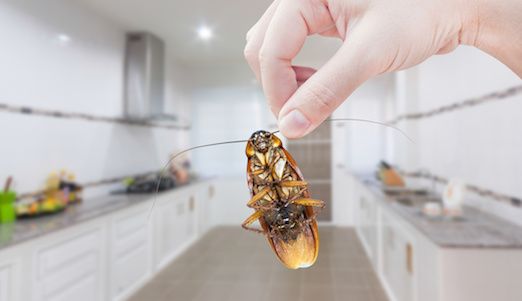Article
Eliminating Cockroaches in the Home has Significant Impact on Children with Asthma
Author(s):
Killing cockroaches from infested homes reduced asthma morbidity.

An interdisciplinary study determined that a single intervention trial of insecticidal bait to eliminate German and American cockroaches from infested homes was effective in reducing asthma morbidity in children. Children in treated homes showed dramatic improvement in symptoms and lung function, and a reduction in healthcare utilization.
Researchers from Tulane University in New Orleans, Louisiana, and North Carolina State University in Raleigh, North Carolina led by Felicia Rabito, PhD, MPH, from the Department of Epidemiology, School of Public Health and Tropical Medicine at Tulane University sought to determine whether or not a single intervention of insecticidal bait could effectively reduce cockroach exposure "in the homes of children with asthma, and examine the impact of cockroach reduction on asthma outcomes."
The yearlong randomized control trial focused on 102 children from the Greater New Orleans area who had been diagnosed with moderate-to-severe asthma (either hospitalized or received emergency interventions in the past year) and were between the ages of five and 17-years-old. The homes of selected participants were inspected for cockroach infestation, and a baseline infestation number was established for each residence.
A total of 53 of the 102 homes were randomly selected to participate in the treatment regimen as "intervention homes;" the remaining 49 homes served as control. Insecticidal bait was placed in intervention homes at areas of "active cockroach infestation," and traps were regularly placed and checked to monitor the number of trapped cockroaches.
Data collected at regular intervals over the course of the year through home visits and telephone interviews (to monitor infestation, allergens, and asthma control for children), revealed a sharp decrease in asthma symptoms for children in homes treated with the insecticidal bait, including a reduction in "wheezing, tightness of chest, and cough."
Statistically significant improvement was also found in health care utilization.
Children in treated homes had 17% fewer unscheduled clinic and emergency visits than children in untreated homes. There was also a statistically significant improvement in lung function in children in the homes where cockroaches were eliminated. More dramatic results were noted by Rabito and fellow researchers, who discovered that there was a significant decrease in overall asthma symptom days corresponding to 47 fewer days with symptoms over the course of a year for children in treated homes.
Rabito also reported that although the beneficial effects of the study were more "pronounced in children with cockroach allergy, benefit was present in those in whom allergy was not detected, consistent with previous observations of the importance of cockroach exposure independent of sensitization status." These findings confirmed earlier studies that suggest that cockroach exposure is "an important contributor to asthma disparities that, despite an overall trend for stabilization in prevalence, continues to rise among the poor."
Rabito and colleagues pointed out those asthma outcome disparities were "driven by many factors, with disproportionately high exposure to cockroach being one cause." The team concluded that their findings provided clear evidence of affordable and feasible intervention tactics, which could benefit low-income families in particular, and provide important insight into the importance of managing cockroach allergens in the home.
The article "A single intervention for cockroach control reduces cockroach exposure and asthma morbidity in children" was published online in January 2017 by The Journal of Allergy and Clinical Immunology.
Related Articles:
Technology Tweaks Asthma Self-Management Programs for Adolescents


